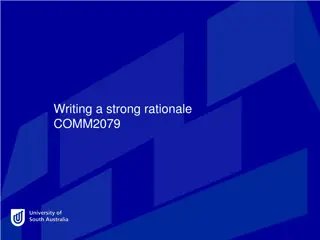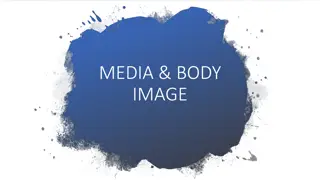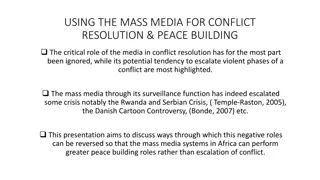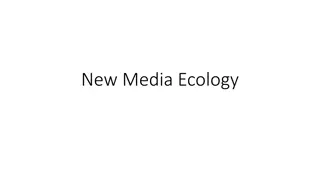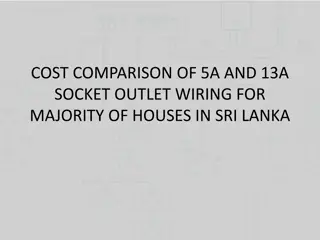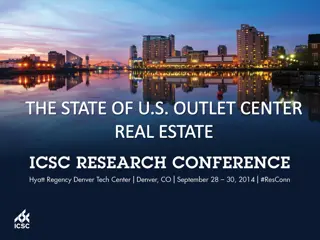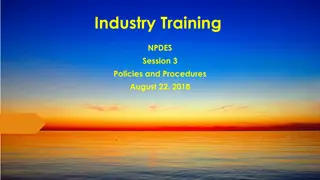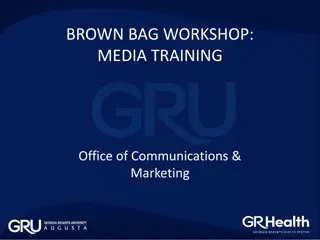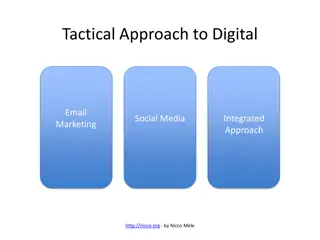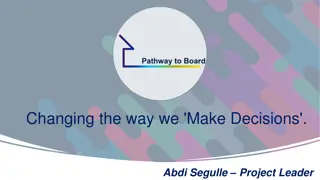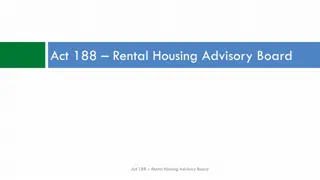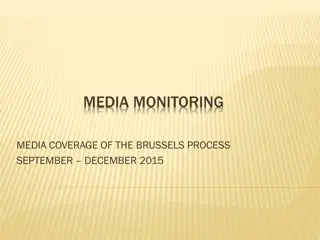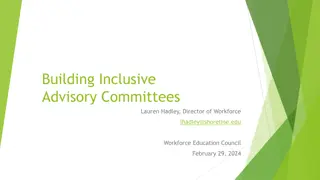Building an Effective Advisory Board for Your Media Outlet
Discover the benefits of forming an advisory board for your media outlet, including feedback on mission/goals, industry trends, mentorship, networking opportunities, and enhancing credibility. Learn how an advisory board can support without interfering with operational authority or day-to-day decisions.
Download Presentation

Please find below an Image/Link to download the presentation.
The content on the website is provided AS IS for your information and personal use only. It may not be sold, licensed, or shared on other websites without obtaining consent from the author. Download presentation by click this link. If you encounter any issues during the download, it is possible that the publisher has removed the file from their server.
E N D
Presentation Transcript
Building an Effective Advisory Board for Your Media Outlet Warren Koz Kozireski SUNY-Brockport, General Manager, WBSU Mark Maben Seton Hall University, General Manager WSOU Glenn Schuck Reporter/Anchor 1010 WINS New York City WSOU Advisory Board Member
Whether your outlets mission is pre-professional or a student activity, having an advisory board has its benefits
Advisory Boards Can: Provide feedback on mission/goals, programming, and service to the community Help formulate policies and procedures Give guidance on current industry trends and technology Share expertise Secure resources for your media outlet Advocate for your station on campus and the broader outside community Have your back
Advisory Boards Can: Be a sounding board for new ideas or proposed changes Provide evaluation and assessment when required by your school Mentor Help you Network Open opportunities for internships and jobs Build greater awareness for your media outlet Enhance your media outlet s credibility and reputation Play devil s advocate Have your back (worth repeating!)
Worried About Autonomy or Interference? An Advisory Board is there to provide informed but non-binding guidance
Advisory Boards Shouldnt: Have operational authority over your media outlet A say in day-to-day management decisions Decision-making authority over programming The ability to fire student staff members Budgetary control
Board Composition Members can include the following types of individuals: Administrators Faculty Students Alumni Local industry professionals Civic leaders Government officials School trustee/regent Volunteers Others
Keys to Success A study by the Station Resource Group found four essential elements for effective advisory boards: A clear mission Strong recruitment Member succession plan (including term limits) Commitment from staff
Keys to Success In addition, we add the following as ingredients for success: Set expectations Run productive meetings Engage board members beyond regular meetings Keep board members informed Listen to what your members have to say and don t be defensive Show and tell
Structure Remember, the board should be designed as solely advisory in nature. What to call it? How big? How often? Where? Open or closed? Policies and procedures
Example: WBSU 2 current student station members 2 students appointed by Student Government 1 College Senate 1 Communication Dept. Faculty 1 College President appointee 1 Vice President Student Affairs appointee 1 Community member (appointed by the College President)
Example: WSOU Dean of the College of Communication and the Arts University Provost (or his/her designee) A Faculty Member from within the College of Communication and the Arts A Faculty Member from outside of the College Station s General Manager and Chief Engineer WSOU Student Station Manager and Staff Representative Two WSOU Alumni Members Two Members from the Broadcasting and/or Music Industries A Representative from the Archdiocese of Newark Additional members can be added to the Advisory Board but composition of the Board cannot exceed 21 members.
Potential Pitfalls Time Commitment Lack of Commitment from Board Members Interference by Board Members Intimidation Lack of Confidentiality
If you are in this room and your media outlet receives funding from the Corporation for Public Broadcasting (CPB), raise your hand please.
Final Thoughts It is work to start it up, but it is worth it Get student buy-in Stay committed More on Got Your Back








